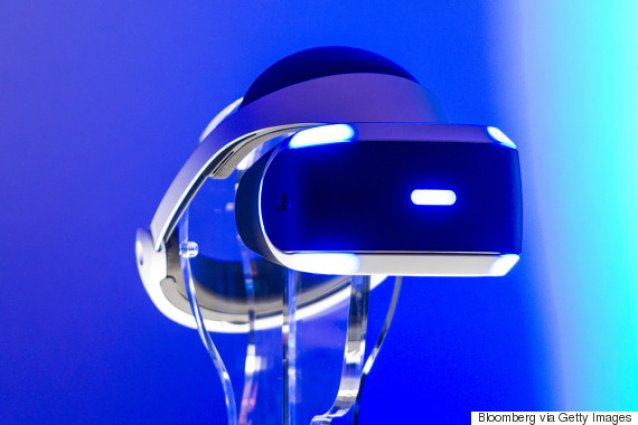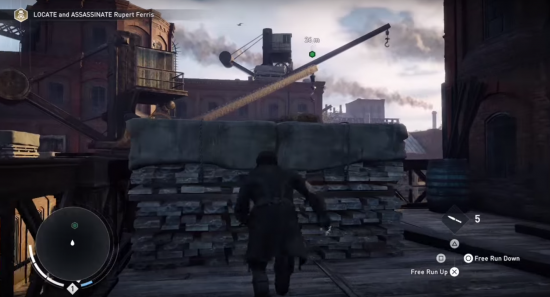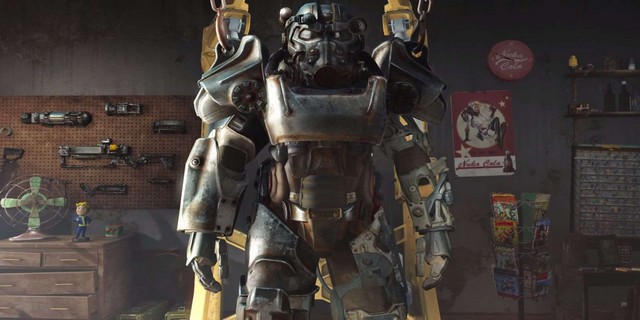


This week I attended the Silicon Valley Virtual Reality Conference here in San Jose, and I was able to experience nearly every major VR product I’d heard about during the GDC but didn’t get to try. Namely the SIXENSE STEM system, which provides wickedly-accurate 1:1 control for PCs, the Samsung Gear VR, which was neat but otherwise “meh”, and Sony’s Morpheus, which used a combination HMD and Playstation Move sticks to provide 1:1 control in a virtual space. The Morpheus demo was amazing, but it also put into perspective for me the realities of VR as a product, versus the image I had of where VR might go in the near future. While the technology is compelling, the realities of enjoying true VR give me pause to worry about the future of this technology.
I'm a PC gamer first and foremost, and while I’m very familiar with the Oculus Rift DK2, I hadn’t had a chance to try out Sony’s Morpheus until I attended the convention. Being a proponent of the PC, I was wary about the Morpheus until I had a chance to actually try the thing out. Sony provided a demo called The London Heist, which for all intents and purposes is the only true VR experience currently in working order on any platform at all.
In The London Heist, the player alternates between standing and sitting positions as the events of the game change. The player starts out sitting opposite a big thug with a bad attitude, who’s about to interrogate you with a welding torch but is interrupted by a call on his phone. The thug offers the phone to the player, but you need to physically stand up to be able to reach out with a Move stick and take it from his hand. After you listen to the gruff voice on the other line (by holding the Move stick up to your ear!), the game shifts to the inside of a fancy office, and the player is tasked with quickly using the Move sticks in each hand to manually grab the handles on various drawers and pull them open, revealing a gun, ammo clips, a key, and a big freakin’ diamond. Once the diamond is found, enemies start to spawn, and the player has to take physically take cover by ducking and crouching behind a desk while trying to shoot the bad guys without catching a bullet in the head. It was exciting and fun as hell.
The London Heist demo was *so* impressive that had it been a product available for purchase, I would have bought one right then and there. Now, this isn't a testament to the power of the PS4 or the unique quality of the Morpheus, this is a testament to the results of creating a game specifically designed for use with Virtual Reality hardware. Not just an HMD like the Morpheus, but integrated and direct support for both 1:1 control and environment navigation based on player location in a virtual space. The London Heist demo had that all, and for the moment, it seems that only Sony has actually thought this far ahead when it comes to the future of VR. If they’re really willing to put some serious money into it, The PS4 and Morpheus may come out on top, at least for a little while.
From what I could tell, the Oculus and the Morpheus are virtually the same product. The quality of their displays are pretty much identical, they both feel lightweight and comfortable, and neither of them caused eye strain or headaches within ten minutes of continued use. The major difference between the Oculus and Morpheus, though, is that there are currently no significant titles with impressive budgets being developed *specifically* for their use with on PCs. Oh, the Oculus and Vive will work with Skyrim and Star Citizen and Elite: Dangerous and TF2 and almost everything else, but there are no games as of yet that are designed from the ground up to take advantage of both the HMD and a set of 1:1 controllers like the SIXENSE STEM or Sony Move. The only example of this development that I've seen for PC is SIXENSE's own lightsaber tech demo, which I was also able to try at the convention. It was a limited if great experience, but doesn’t come close to what was presented by Sony.
A couple minutes of the really fun SIXENSE STEM lightsaber demo, showing off the 1:1 controls
The fact that the SIXENSE demo is the only playable anything on PC comprising a “true” VR experience is...well, sad. It shows that despite the popularity of the technology and the support it's receiving from the community and media, no company with any kind of real resources has looked at the tech and come to the conclusion that VR is the direction that gaming must take in the future. They haven't invested in it it seriously with either their time or their money, while Sony on the other hand, appears to be putting money directly into the development of games that make real use of the tech. True interactivity through VR, not just being able to look around in a game with an HMD, really does make a world of difference.
As much as I’m a PC gamer, until the PC has at least one solid game designed for the player to use 1:1 control sticks and an HMD, it won't be able to provide a true VR experience at the same level as Sony with the Morpheus and Move. Even the recently announced Arizona Sunshine, “designed” for the HTC Vibe, doesn't seem to make use of 1:1 controls, and if it doesn't, then it's not truly built for VR, it's just another FPS game that's compatible with HMDs.
Arizona Sunshine teaser. Supposedly the game is designed for the Vibe specifically.
This, unfortunately, is going to be the problem with VR’s acceptance into mainstream gaming. Sony’s demo worked so well because the thing was specifically created to be used with an HMD, 1:1 controls and the PlayStation Eye camera. It was amazing, and based on the quality of the demo it appears Sony has quite a bit of money and time tied into the success of this product. The most important thing the game industry can do right now is focus on popularizing the technology beyond the state of just a cool gimmick that only YouTube geeks and ultra-nerds and omega-dorks will be into. That's where it is right now, and that's where it's going to stay unless it has quality games available to support the hardware at launch. As we’ve seen countless times with new hardware launches, the games available for the platform when it’s first available can make or break the first year or two of a platform’s life. What really establishes a new technology is how it's used and the availability of awesome software to be used with it. If there are no games that work in true VR when the things officially launch, they're going to fall into a niche market and never get popularized like they should.
I’ve been an advocate of VR technology since the mid-1990’s. I’ve been telling people for decades that this is the way games will eventually go, and it’s nice to be finally vindicated, at least a little, by the extremely positive reaction the Oculus has received. Unfortunately at this rate it seems that the true VR Revolution won’t bear fruit for another few years. I’ll be running around Skyrim on my Virtuix Omni while I wait.




 Donkey Kong Country Returns 3D: Puzzle Pieces & KONG Letters Guide
Donkey Kong Country Returns 3D: Puzzle Pieces & KONG Letters Guide The Paleto Score Mission Guide in GTA V
The Paleto Score Mission Guide in GTA V Elder Scrolls V: Skyrim Trophies List
Elder Scrolls V: Skyrim Trophies List Don't Let Your Facebook Friends Sell You a Pyramid Scheme
Don't Let Your Facebook Friends Sell You a Pyramid Scheme Fallout 4: Entrance Code For Road To Freedom Quest Revealed (Update)
Fallout 4: Entrance Code For Road To Freedom Quest Revealed (Update)